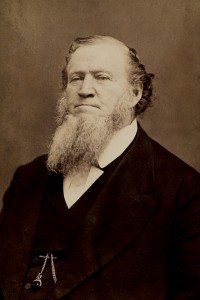This is a guest post by Jamie Huston, who blogs at gentlyhewstone.com.
PART I: INTRODUCTION
Can you define the word “chair?” Seems simple—let’s say it’s a small, raised platform that’s supported by legs and which typically has a back against which your torso can rest. That definition brings to mind a single, simple, useful picture—in short, a conservative ideal of chairs.
But might that seem too restrictive? So let’s say a chair can have variations. Chairs with wheels are chairs, too, and shouldn’t be judged for being different! Those tacky old chairs that are shaped like a giant hand? Those are chairs that demand to exist as they are—a chair that lives on the fringes of society and is getting tired of being mistreated.
Maybe accepting some natural variations is morally decent, though, right? But now we’re on a slippery slope. There are some people who claim to be more high-minded than the rest, who embrace diversity and tolerance as the greatest values, and who therefore feel driven to constantly expand our understanding of chairs for us, for the good of those would-be chairs which have been marginalized and for those of us who are too culturally dull to know that we had many more chairs among us in the first place.
Is not, they indignantly say, a chair anything on which one might reasonably sit? Is not a bean bag a valid chair? A couch? The ground itself? Well, perhaps, we’re inclined to say, for we see many of our peers nodding at the wisdom of this, and feeling good about ourselves for being such pioneers of inclusion.
And now we’re solidly in liberal territory (liberal, after all, connotes expansiveness above all—the eternal obsession with widening existing things). Once we’ve established that the very surface of the world could be called a chair, for it can kind of serve a similar function if forced to, we have given a green light to the radicals who insist that it’s a moral imperative to recognize as a legitimate chair anything and everything that could ever conceivably be used for sitting. The hood of a car, a rock, a stack of books: all chairs.
By this point, much of society has decided that—in line with the warped thinking that has gotten us this far—virtue lies in defending the most extreme minorities possible. Life becomes a contest to advertise our righteousness by campaigning for the most imaginative visions of chairs. The tops of skyscrapers, piles of razor blades, the backs of sleeping grizzly bears: all are supposedly just as valid as any other kind of chair.
Continue reading



